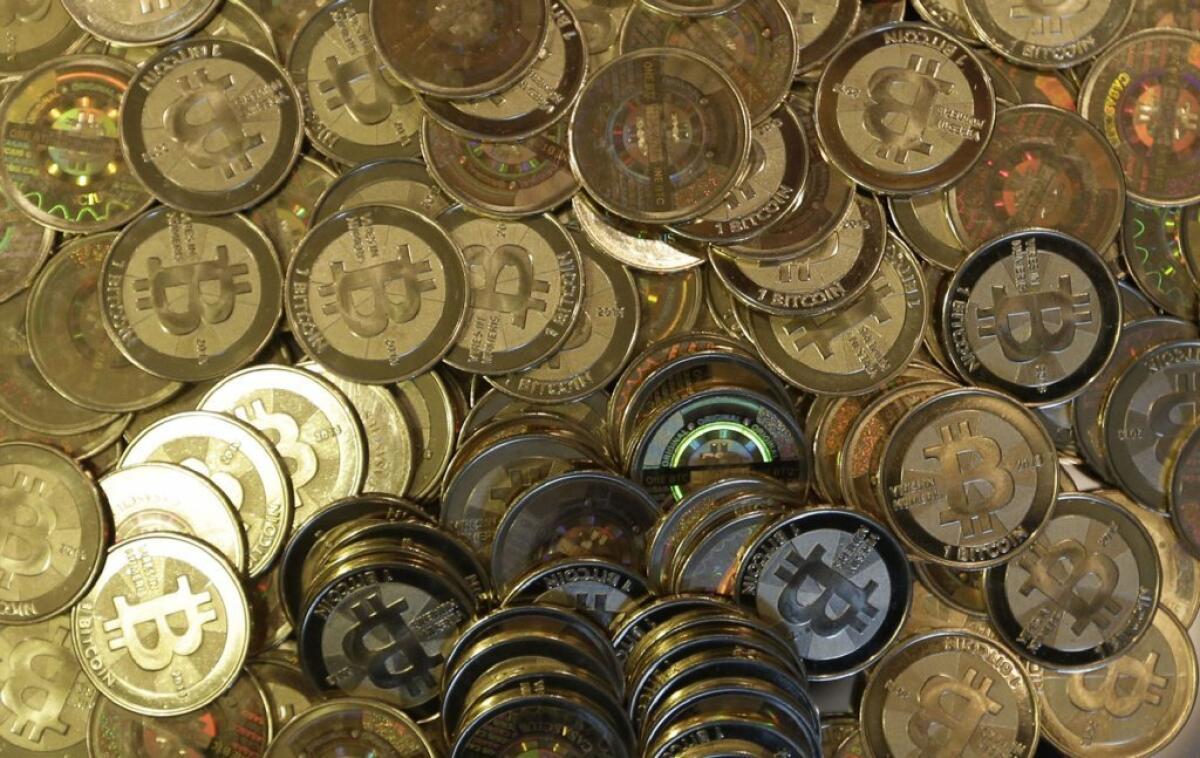The bitcoin crash of 2013: Don’t you feel silly now?

- Share via
People who thought that bitcoins could serve as either an investment vehicle or an alternative world currency got their heads handed to them on Thursday and Friday. That’s when the price of the attention-grabbing crypto-currency got crushed, falling from a quoted $1,200 per “coin” to less than $600. At this writing, it’s quoted on the Mt. Gox exchange at about $830.
The whipsaw validates what we wrote about bitcoins just two weeks ago: they’re useful as a medium of transfer, but even then you have to be nimble. If you were a Greek or a Spaniard using bitcoins to move money out of your home country without having to worry too much about your local foreign exchange or banking rules, and you figured on Thursday that you could get around to transferring your asset back out of bitcoins and into dollars or sterling--whoops! You lost half your stake in a matter of hours. The minimum time required to complete a trade in bitcoins is ten minutes; that’s about how long you should hold them to keep exchange rate risk low.
And if you were taken in by all the talk about bitcoins replacing gold as a storehouse of value, well, now you’ve been taken down. Much of that talk was generated by the peak quote of bitcoins last week at $1,200, which was sometimes described as equivalent to or even higher than the price of gold. That’s an absurd statement, of course: $1,200 bought you an ounce of gold bullion, but on the bitcoin market it only bought you a putative claim on the outcome of a mathematical algorithm.
The proximate cause of the bitcoin crash was a warning by China’s central bank against treating bitcoins as legal tender. The Beijing government didn’t ban bitcoins, however, stating that Chinese citizens are still free to engage in bitcoin transactions at their own risk.
The bitcoin market’s reaction underscores what Stanford economist Susan Athey has said--that the value of bitcoins lies in their potential to facilitate transactions. The more transactions you think can be done in bitcoins, the higher their price. Because the Chinese government’s statement may reduce confidence in bitcoin trades there, the market plunged.
Bitcoins will undoubtedly rise in quoted value again, and also fall again. The one inevitability about them is their volatility, to which there’s no end in sight. What does this tell us about bitcoins’ future as an alternative currency? This is the hope of gold bugs and other critics of central banks and their fiat currencies, but plainly bitcoins aren’t anywhere near that stage yet, and probably never will be.
Bitcoin advocates love to talk as though their new medium will be a counterforce to governments’ tendencies to devalue their own currencies for economic gain. As Boston University economist Laurence Kotlikoff recently wrote: “Anyone familiar with current U.S. monetary policy might well wonder whether our country wouldn’t be better served with bitcoins replacing the dollar.”
You can stop wondering. The answer is no.
More to Read
Inside the business of entertainment
The Wide Shot brings you news, analysis and insights on everything from streaming wars to production — and what it all means for the future.
You may occasionally receive promotional content from the Los Angeles Times.











